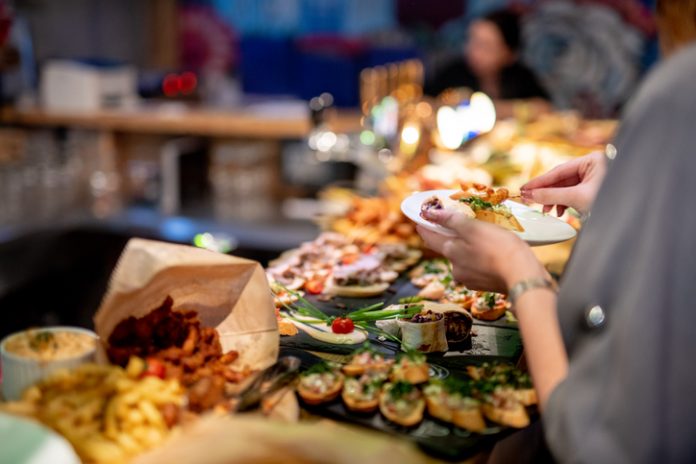
The hospitality industry works diligently to provide exceptional experiences for each guest, priding themselves on delivering personalized service, a welcoming environment, and high-quality amenities. While those elements are critical to a successful guest experience, hotels must also prioritize food safety by working continuously to mitigate risks and keep guests safe.
Millions of people become ill from food safety breaches annually, and many of these incidents are avoidable. Therefore, prioritizing food safety and following gold standard safety protocols prevent food safety breaches—and the financial, legal, and reputational damage that often accompanies them.
The following are eight tips to reinforce food safety, mitigate risks, and keep guests safe:
1Use tech tools.
Tech tools are dramatically elevating food safety, so leverage the latest innovations. For instance, AI offers benefits to the hospitality industry, elevating safety, operational efficiencies, and more. Machine learning uses complex algorithms to learn critical information and makes predictions based on historical patterns. In the food industry, machine learning algorithms can predict food safety risks based on various parameters, such as storage conditions, handling, and more. Blockchain improves transparency and traceability, ensuring product authenticity, safety, and quality, tracing food back to its source to prevent food fraud and increase food safety. And IoT devices monitor various safety and quality parameters in real-time, such as temperature, humidity, vibration, and more, providing constant feedback so brands can act quickly to prevent safety breaches and quality degradation.
2Create a food safety culture.
Build and maintain a food safety culture that starts at the top. Leadership should promote the importance of food safety and demonstrate through words and actions that it’s a priority. Empower employees to take ownership of food safety, reiterating that it’s everyone’s responsibility. Also, don’t just tell employees what to do. Tell them why to do it. When you explain the reasoning behind the food safety protocols, employees will be more likely—and more willing—to comply.
3Follow gold standard food safety protocols.
Make food safety rules non-negotiable. Employees must follow best practice protocols, like cooking foods to proper temperatures, avoiding cross-contamination, sanitizing surfaces and equipment regularly, washing hands often, and storing foods properly. Give employees resources such as properly calibrated food thermometers and easily accessible handwashing stations to prepare foods properly and safely.
4Offer ongoing training.
Hospitality brands should provide regular, ongoing food safety training for employees. Make training interactive, engaging, and memorable so employees understand what to do in a variety of situations. Role-play common scenarios, send reminders directly to employees’ smartphones, and provide onsite signage to reinforce key safety messages. Ensure that all employees understand and follow food safety protocols to reduce costly and damaging breaches.
5Work only with safe suppliers.
While it’s important for your hotel to follow gold-standard safety protocols, that alone is not enough. All suppliers across the supply chain must follow proper safety protocols, too. Work only with suppliers that prioritize food safety and transparency. Conduct regular reviews to confirm that suppliers are compliant with best practice standards to help reduce risks. A healthy supply chain fosters strong communication and information sharing. Suppliers should be willing to share their safety certifications, and if they’re not, find new suppliers.
6Look at trends.
Are there more noncompliance issues during certain shifts or when certain employees are working? Do certain hotel locations have more food safety incidents or “near misses” than others? Analyzing trends allows hospitality brands to see when (and where) issues occur most frequently so they can focus time and resources accordingly to boost compliance. Using trends data, hotels can take proactive steps to retrain staff, adjust processes, and increase inspections to create an environment of continuous improvement.
7Boost transparency.
Key audiences including guests, prospects, employees, investors, and partners no longer blindly trust that food safety protocols are happening behind the scenes. Stakeholders are increasingly expecting to see proof that safety protocols are being implemented correctly and consistently and that all staff members are working together to keep them safe. Be transparent with your safety messages. Brands should promote these messages through onsite signage, menus, their website, and social media platforms.
8Avoid careless mistakes.
Remind employees that even seemingly minor mistakes could sicken (or even kill) guests. For instance, they shouldn’t absentmindedly garnish a dairy-allergic guest’s plate with a cream-based sauce. They can’t use the same board to prep raw chicken and then chop vegetables for a salad. They can’t forget about a delivery, leaving perishable seafood out in the hot sun all day. And they can’t skip handwashing before handling food and after blowing their nose, coughing, using the restroom, or handling money, cellphones, or chemicals.
A commitment to food safety is an essential, ongoing effort to keep your employees, guests, and businesses safe and healthy. And that’s a huge part of delivering an exceptional guest experience.
When hospitality brands prioritize food safety, guests, prospects, employees, and other key stakeholders will notice and appreciate the effort. Boosting food safety and minimizing risks can result in improved metrics, including higher sales, customer satisfaction and loyalty, and positive reviews. Prioritize food safety to protect guests, business, reputation, and bottom line.











